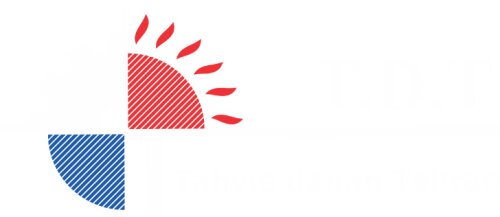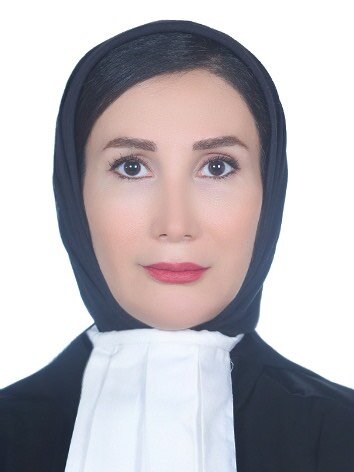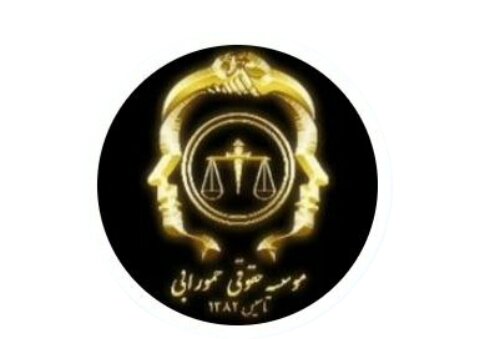Best Sanctions & Export Controls Lawyers in Tehran
Share your needs with us, get contacted by law firms.
Free. Takes 2 min.
List of the best lawyers in Tehran, Iran
About Sanctions & Export Controls Law in Tehran, Iran
Sanctions and export controls refer to a set of national and international legal measures that regulate, restrict, or prohibit transactions with specific countries, individuals, or goods. In Tehran, and broadly across Iran, these laws are particularly significant due to extensive international sanctions imposed by various bodies such as the United States, the European Union, and the United Nations. The government also implements its own export control regulations to manage the transfer of sensitive goods, technologies, and services.
These legal frameworks aim to safeguard national interests, endorse foreign policy objectives, and comply with global nonproliferation commitments. Businesses operating in Tehran must be especially vigilant, as violations can carry severe civil and criminal penalties. Understanding the complex landscape of sanctions and export controls in Iran is critical for individuals and companies engaging in international trade, finance, or technology transfer.
Why You May Need a Lawyer
Seeking legal advice in the realm of sanctions and export controls is highly advisable in several common scenarios:
- You run a business in Tehran that deals with international clients or suppliers and need to determine if sanctions affect your transactions.
- You are engaged in imports or exports and require clarification on which goods or technologies are subject to government restrictions.
- You are a foreign national, or work with foreign entities, and want to ensure compliance with both Iranian and international laws.
- You or your business have received notices, fines, or inquiries from Iranian authorities regarding export controls or sanctions violations.
- You wish to apply for licenses or exemptions for specific transactions or goods.
- You are facing asset freezes, blocked accounts, or other financial restrictions as a result of sanctions enforcement.
- You need guidance on internal compliance policies to prevent inadvertent violations.
Legal counsel can help interpret regulations, communicate effectively with authorities, represent your interests in proceedings, and minimize risk of penalties.
Local Laws Overview
Sanctions and export controls in Tehran are shaped by a blend of national legislation and the practical impacts of international measures:
- Iranian Laws: The Iranian government regulates the export and import of goods, especially dual-use and sensitive technologies, through agencies such as the Ministry of Industry, Mine and Trade. Certain goods require special licenses or are entirely prohibited from export or import.
- International Sanctions: Over the years, Iran has faced numerous international sanctions, primarily targeting its energy, banking, and technology sectors. These may restrict business with Iranian entities or individuals, limit financial transactions, and affect access to international systems.
- Enforcement: The Iranian Central Bank, as well as customs and law enforcement bodies, monitor compliance. Violations may result in asset freezes, fines, or criminal prosecution.
- Licensing & Exemptions: It is sometimes possible to apply for waivers or special permits for humanitarian goods, medicines, or other exempted items. Navigating the application process typically requires specialized legal guidance.
- Local Compliance: All organizations must implement internal procedures to identify and prevent dealings with sanctioned persons, or the export of controlled goods and know-how.
Frequently Asked Questions
What are the main types of sanctions impacting Tehran, Iran?
Most external sanctions cover financial transactions, energy exports, key industries, and dealings with specific individuals or entities tied to sensitive sectors.
Who enforces export control and sanction laws in Iran?
Enforcement is shared among several authorities, including the Ministry of Industry, Mine and Trade, the Iranian Central Bank, and customs agencies.
Are there ways to conduct international trade lawfully under sanctions?
Yes, but companies and individuals must carefully navigate complex regulations, secure necessary licenses, and conduct due diligence to avoid prohibited transactions.
What are dual-use goods?
Dual-use goods are items, software, or technology that have both civilian and military applications. They are often subject to export controls due to security concerns.
Can humanitarian goods be exported to and from Iran?
In many circumstances, humanitarian goods such as food and medicine are exempt from some sanctions, but exporting or importing them still typically requires adherence to specific legal processes and documentation.
What are the consequences of violating sanctions or export controls?
Penalties can be severe and may include significant fines, seizure of assets, restrictions on business operations, and in some cases, criminal prosecution.
Do I need a license to export technology from Tehran?
If the technology is classified as controlled or sensitive, you may need a government-issued license. Consulting a legal expert is the safest way to determine if a license is necessary.
Is it possible to appeal a sanctions enforcement action?
Appeal mechanisms do exist, but they require careful legal strategy and thorough documentation. An experienced lawyer can guide you through the process.
How can I find out if a person or company is on a sanctions list?
Sanctions lists are published by both Iranian authorities and international organizations. Lawyers can assist you in conducting proper screening and compliance checks.
What should I do if my assets are frozen due to sanctions?
Contact a legal professional immediately. They can assess your situation, explore possible exemptions, and help you navigate any appeal or compliance measures necessary.
Additional Resources
Here are some useful resources and organizations for those seeking more information or assistance on sanctions and export controls in Tehran, Iran:
- Ministry of Industry, Mine and Trade - Responsible for export-import regulation and licensing.
- Iranian Central Bank - Oversees financial transactions and compliance with financial sanctions.
- Iranian Customs Administration - Manages trade compliance and enforces export-import controls.
- Iranian Chamber of Commerce, Industries, Mines and Agriculture - Provides information and compliance workshops for businesses.
- Licensed legal firms specializing in international trade and sanctions compliance.
- Official government websites and published bulletins on sanctions lists and regulatory updates.
Next Steps
If you believe you require legal assistance with sanctions or export controls in Tehran:
- Gather all relevant documentation such as contracts, correspondence, notices, and transaction records.
- Make a list of specific questions or concerns to discuss with your legal advisor.
- Contact a qualified lawyer or legal firm with expertise in Iranian and international sanctions law.
- Request an initial consultation to assess the complexity of your issue and possible solutions.
- Stay informed by regularly checking updates from relevant Iranian authorities and international bodies to ensure ongoing compliance.
Proper legal guidance is the best way to manage risks, protect your interests, and ensure full compliance with all applicable sanctions and export control laws in Tehran, Iran.
Lawzana helps you find the best lawyers and law firms in Tehran through a curated and pre-screened list of qualified legal professionals. Our platform offers rankings and detailed profiles of attorneys and law firms, allowing you to compare based on practice areas, including Sanctions & Export Controls, experience, and client feedback.
Each profile includes a description of the firm's areas of practice, client reviews, team members and partners, year of establishment, spoken languages, office locations, contact information, social media presence, and any published articles or resources. Most firms on our platform speak English and are experienced in both local and international legal matters.
Get a quote from top-rated law firms in Tehran, Iran — quickly, securely, and without unnecessary hassle.
Disclaimer:
The information provided on this page is for general informational purposes only and does not constitute legal advice. While we strive to ensure the accuracy and relevance of the content, legal information may change over time, and interpretations of the law can vary. You should always consult with a qualified legal professional for advice specific to your situation.
We disclaim all liability for actions taken or not taken based on the content of this page. If you believe any information is incorrect or outdated, please contact us, and we will review and update it where appropriate.

















